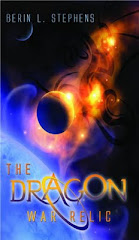VI. POW,
Right in the Kisser, Part 1
Abbott: I'm
telling you. Who's on first, What's on second, I Don't Know is on
third–
Costello: You
know the fellows' names?
A: Yes.
C: Well, then
who's playing first?
A: Yes.
C: I mean the
fellow's name on first base.
A: Who.
C: The fellow
playin' first base.
A: Who.
C: The guy on
first base.
A: Who is on
first.
C: Well, what are
you askin' me for?
We've all heard
this comedy routine over the years. It has stood the test of time.
Why is it funny? One reason is because of what we call 'play on
words', or POWs. POWs are used all the time in comedy and there are
several different forms: puns, malaprops, oxymorons, double
entendres, twisting cliches, reforming words, etc. There are a lot of
things to cover here, so we'll only discuss three this week.
Let's start with
malaprops. “What does that mean?” you ask. Well, let's just say
that it's a fancy way of describing when we misspeak with a humorous
result. They mainly work if the person saying them is unaware of what
they are saying. Do you remember our previous statements from
insurance claims? Go ahead, look back. Okay, most of those are
malaprops. Here are a few other examples:
On a wedding
announcement: “Mr. And Mrs. John Smith request your presents at
their daughter's wedding.”
George W. Bush:
“We cannot let terrorists and rogue nations hold this nation
hostile or hold our allies hostile.”
Former Chicago
Mayor Richard Daley: “The police are not here to create disorder,
they're here to preserve disorder.”
It
can also be when words are improperly used in place of others. This
is a common trick utilized in sketch comedies and sitcoms. For
example, in Tim Allen's series, Home Improvement,
Tim would often talk to his neighbor, Wilson. Wilson would give wise
advice based on obscure references. Tim would later try to quote them
to someone else and end up replacing his own words into Wilson's
statements. Here's one example:
W: Tim, it's not unusual for a father
to want his son to succeed. You know, I'm reminded of what Wally
Schirra, the astronaut said, “You don't raise heroes, you raise
sons. But if you treat them as sons, they'll turn out to be heroes,
even if it's just in your own eyes.”
Then, when Tim tries to relate this
advice to his son:
T: I'm reminded
of what the great astronaut, Wally Cleaver said. You can't expect
your son to do his homework and eat a foot-long hero without Prussian
dressing.
How can we use
this in our novels? Well, one way is to build it into one of our
characters (like Tim 'the Tool Man' Taylor). In Dragon War Relic,
my comic-relief character, Doug, is not the brightest bulb on the
tree and would often mix things up. Your not-so-comic characters can
do it, too, but make sure it doesn't seem out of place for them to
say it.
Another technique
I use is one I call 'reforming words'. This is where a writer
purposely reorders words or letters to create a kind of humorous time
bomb: a joke that at first isn't realized until thought about later.
Some examples can be found in my Tales of Myrick the (Not So)
Magnificent stories. For instance, there's my barbarian character
Nonac of Airamic. Nonac is just Conan with the first and last letters
switched. Conan was from Cimmeria, so Airamic is a respelling of it
backwards. I've also planted more little time bombs in my Myrick
stories as a subtle way to make fun of our world and culture while
having things set in a fantasy world. Like there are the monks who
worship Endonynt (Nintendo). Also, several of the magic spells are
scrambled statements waiting to be decoded.
Let's close this
week with oxymorons. You probably already know what those are, two
words next to each other that are contradictory. Things like: jumbo
shrimp, pretty ugly, soft rock, alone together (though it's a great
jazz standard), and Congressional Ethics. Some of my favorites are:
military intelligence, rock musician, and country music. A good use
for these is in chapter titles. Oxymorons utilize the principle of
opposites, which is a commonly used technique that we'll delve more
into later.
Next time, we'll
deal with puns, cliches, and double entendres.

No comments:
Post a Comment